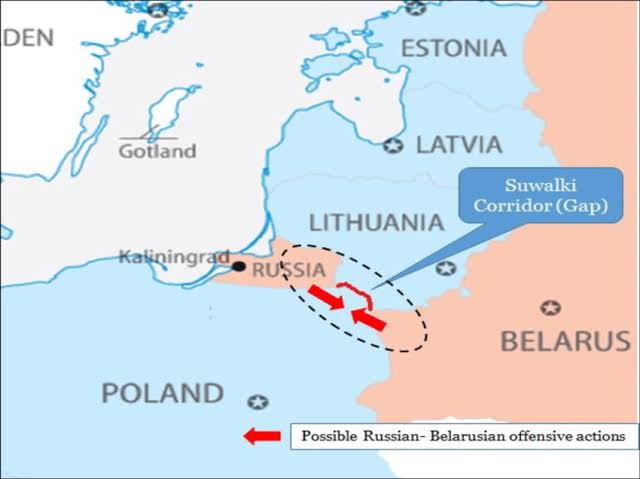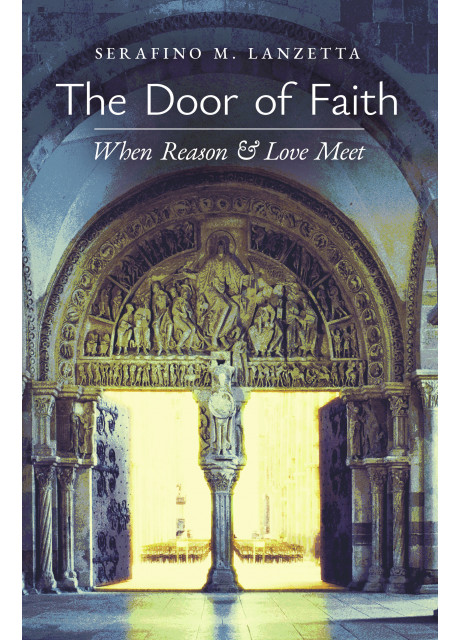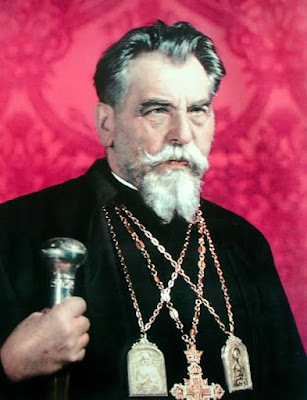The Hours at the Abbey - 1: MATINS
Full Text of Dr. Kwasniewski’s Talk on the Superiority of the Old Lectionary over the New
The following lecture, sponsored by the Coalition for Canceled Priests, was given at Velocity All Sports in Mokena, Illinois, on March 7, 2022. The video also includes an extensive Q&A.—PAK
85 Years of The Encyclicals of March 1937: Divini Redemptoris
and the ever-present dangers of Communism
Given at Rome, at St. Peter's, on the feast of St. Joseph, patron of the universal Church, on the 19th of March, 1937...
This is a (Lenten) month of celebration for us, with the 85th anniversary of three encyclicals of one of the greatest pontiffs in living memory, Pius XI: in their order of publication, Mit brennender Sorge (March 14); Divini Redemptoris (March 19); and Nos es muy conocida (March 28). In very different ways, the three encyclicals deal with the same matter: how do the Church and the Catholic faithful deal with a Totalitarian regime, run by National-Socialist pagan nation-worshippers, Communist Atheists, or "Fraternal" Mexican post-Revolutionary lords?
The Consecration
📹 VIDEO | One of the most impactful moments during Pope Francis' consecration of Russia and Ukraine to the Immaculate Heart of Mary. pic.twitter.com/6a8lAM0f84
— EWTN Vatican (@EWTNVatican) March 25, 2022
Major Archbishop of Ukrainian Greek-Catholic Church: "The Consecration of Ukraine and Russia to the Immaculate Heart, in unity of all bishops under the successor of Peter, will be the highlight of the victory over evil."
From the Sermon of the Major Archbishop of the Ukrainian Greek-Catholic Church, His Beatitude Abp. Sviatoslav Shevchuk, in the Moleben (Prayer Service) in Time of War:
 |
| [The Oranta of Kyiv - The Indestructible Wall] |
Ukraine's victory is the victory of good over evil, the power of God over the meanness and lust of the invader. The Victory is already beginning, and we can feel it, experience it, even during this prayer.
A special tradition of such prayer is preserved in Kyiv. Apparently, everyone knows the ancient princely belief about the Kyiv Oranta, which is also called the Indestructible Wall. Our Lady Oranta is an ancient mosaic of the 11th century, which depicts the Blessed Virgin Mary in full length with her hands raised in prayer. It is an icon of the prayer of intercession. As long as the Kyiv Oranta stands, as long as the Indestructible Wall is among us, God is amidst his city, as it is written in the apse of St. Sophia Cathedral, as long as the city, the people, and Ukraine stand.
What Ukrainian Catholics Think: "At this point, it is impossible to continue not noticing the satanic nature of the Kremlin regime," and "the blatant paganism of the statements of the Moscow patriarch." (Open Letter)
The Ukrainian Greek-Catholic Church is the largest individual Eastern Church -- that is, the largest after our own Latin Church. And it is truly a Martyr-Church: Russia has tried to destroy it once and again, under Tsarism and under Communism, but it has remained truthful to Catholicity.
For Ukrainian Greek-Catholics, it would be "easy" to become "Orthodox": there is no difference of rite. But what they do have is an indissoluble loyalty to the Roman See: each martyr of the bloody history of the Church, millions of them, had the same spine as Saint Thomas More or Saint John Fisher -- loyalty to the Catholic Faith and to idea and reality of Rome, Mother of all Churches.
This Wednesday, the University founded and supported by the Ukrainian Greek-Catholic Church, the Ukrainian Catholic University (UCU) released a formal document of its Senate and Rectorate explaining to Christians all over the world what is going on. And they do represent faithfully the view of all Ukrainian Catholics, at home and in the diaspora.
***
To Reject The Deeds Of Darkness
Open letter of the Senate and the Rectorate of Ukrainian Catholic University to the Christian Communities of the World
WEDNESDAY, 23 MARCH, 2022
With the beginning of a new phase of the latest Russian-Ukrainian war, Ukrainians invariably recognize themselves in the pages of Scripture in the twists and turns of biblical history. Under the Putin regime, they recognize: “for they are demonic spirits, performing signs, who go abroad to the kings of the whole world, to assemble them for battle on the great day of God the Almighty” (Revelation 16:14), and they find hope in David’s victory over Goliath. (1 Samuel 17: 1–52).
For the Record: The Fastest Change in a Vatican Legal Text Ever — “Extraordinary Form” No More
On Saturday, the name “Extraordinary Form” was resurrected, as we covered here. Today, it is no more.
The new text of the Apostolic Constitution “Praedicate Evangelium”, on the organization of the Roman Curia, regarding the attributes of the Congregation for Divine Worship regarding the Traditional liturgy is this:
Art. 93:
Lacordaire: : A Protestant is his own unity
You will perhaps ask why God has left so many questions open to discussion. You might as well ask why God has not revealed everything.
"Putin's Attack on Ukraine" - by Dr. John Lamont
For the Record: The "Extraordinary Form of the Roman Rite" is still the official name of the Traditional Roman Rite for the Vatican
[Update: not anymore…]
When Traditionis Custodes was promulgated last year, that disturbing document had as its central theoretical point the following definition, in article 1: that the Paul VI liturgical books, "are the sole expression of the lex orandi of the Roman Rite."
The document simply abolished the notion created by Benedict XVI (rejected even by many Traditionalists, but very useful legally) that there are two forms of the Roman Rite: the most prevalent one now (the Novus Ordo), called Ordinary Form, and the Traditional one, called Extraordinary Form.
So, it came as a surprise that the document expected since the beginning of the pontificate, regarding the reorganization of the Roman Curia, the Apostolic Constitution named "Praedicate Evangelium", was released yesterday -- Italian text only -- with the following attributes among those granted to the Congregation for Divine Worship:
Art. 93
Apostolic Nuncio to the United States: All Bishops Invited to Join Pope in Consecration of Russia and Ukraine
"As a Historian, I Believe That the Traditional Latin Liturgy Will Not Disappear" - Catholic Historian Yves Chiron presents his "History of the Traditionalists"
French journal La Nef published an interview with Yves Chiron on the occasion of the publication of his book dedicated to the Traditionalists (Histoire des traditionalistes, Tallandier). Below are the main excerpts published at Le Forum Catholique.
Saint Joseph and the Holy Eucharist — by Fr. Serafino Lanzetta
Let me introduce this topic with a question: did Jesus reveal to St Joseph his desire to institute the Holy Eucharist? Perhaps during the years of his hidden life in Nazareth? Or before the beginning of his public life,e.g., before Joseph fell asleep in God? It is not easy to answer this question, nor is it easy to get some clues from the Gospel accounts. Let us try, however, to investigate the issue with a reason that is open to the central theological element of fittingness. It was certainly fitting for Jesus to reveal to the one who after Mary his Mother was closest to him the secret of secrets, the love of his Heart, the desire of all desires: the Holy Eucharist. Jesus will say in the Gospel of Luke (22,15) with a truly singular and paradigmatic construct: “Desiderio desideravi hoc pascha manducare vobiscum antequam patiar”. Literally, recalling also the original Greek form that follows the same construction,where the verb "to desire" and the noun "desire" are linked to reinforce each other, we have: "I have desired with great desire to eat this passover with you before suffering."
Announcing True Obedience in the Church: A Guide for Discernment in Challenging Times
IMPORTANT: The Pope Will Consecrate Russia and Ukraine to the Immaculate Heart of Mary
“On Friday March 25 [Feast of the Annunciation], during the Celebration of Penance at which he will preside at 17.00 in Saint Peter's Basilica, Pope Francis will consecrate Russia and Ukraine to the Immaculate Heart of Mary. The same act, on the same day, will be carried out in Fatima by His Eminence Cardinal Krajewski, Apostolic Almoner, as envoy of the Holy Father.” (Vatican Press Office)
Russia's War and the Message of Fatima (by Roberto de Mattei)
The message of Fatima is the key to interpreting the dramatic events of the last two years, and in particular what is happening in Ukraine.
It is understandable that this perspective should be foreign to the contemporary man immersed in relativism, but what is most striking is the blindness of so many Catholics, incapable of rising to those heights which are the only ones that allow us to understand events in the dramatic hours of history. And we, after the Covid pandemic, are experiencing the dramatic hour of war.
The collaborationist front
The facts are these: on February 21 2022, Russian president Vladimir Putin, in a speech to the nation, announced the recognition of the independence of the separatist republics of Donetsk and Luhansk, and then ordered that troops be sent to the Donbas region with the aim of “ensuring peace.” On February 24 Putin declared in another speech that he had authorized a “special military operation” not only in Donbas but also in eastern Ukraine. The Russian invasion of Ukraine soon turned out to be much broader and more tragic than expected, causing throughout the world a climate of profound apprehension.
What has been the reaction of Italy and the West in the face of Russia’s aggression against Ukraine? On the one hand there has been an explosion of sentiments of indignation and of solidarity with the Ukrainian people. On the other hand, however, a sentiment of affinity for Putin’s initiative has developed, which has led to the creation of a front that I call “collaborationist.”
Man’s Choice of Life – The Religious Life -'The Council and the Eclipse of God' by Don Pietro Leone – SECTION II – CHAPTER VI continued.
The Council and the Eclipse of God by
Don Pietro Leone
‘Man’s choice of Life’
A. The Religious Life
Ember Days in the Post-Vatican II Liturgical Reforms: An Accidental Elimination?
To the present solemnity, dearly beloved, we must also add that devotion, so that we might celebrate with holy observance the fast which conforms to the apostolic tradition. This ought to be numbered among the great gifts of the Holy Spirit, that, against the desires of the flesh and the snares of the devil, the protection of the fasts has been set up for us. By these we may overcome all temptations with the help of God. Let us fast on Wednesday and Friday. On Saturday, however, let us celebrate the vigil with the blessed apostle Peter as advocate for our prayers, that we might deserve to obtain the mercy of God in all things through our Lord Jesus Christ, who lives and reigns with the Father and with the Holy Spirit for ever and ever. Amen. (Sermon 76)
Francis Removes a 57-year-old American Bishop Named by Benedict XVI with no Explanation
The Next Aims of Putin’s War: The roots of Christian Europe and the threat to the Baltic countries (by Roberto de Mattei)
Carlo Maria Viganò is Not a Traditionalist
He was never a Traditionalist. He was never known to have any particular feelings for the Traditional Mass and Liturgy before he retired as Nuncio. He was never known for any specific pronouncements favoring Tradition during his long career in the diplomatic service of the Holy See.
He made a good contribution on the McCarrick affair, but decidedly after he had left his position as Nuncio to the United States.
We do not know what he represents, who he speaks for, who writes his works, and what he intends to accomplish. We do not know why Rome has let him say whatever he wants, if he still (apparently) receives a Vatican pension, which he does not need, coming, as he does, from a very wealthy Northern Italian family: it looks weird both for Rome and for him. We would not say he is a conspiracy theorist: there doesn't seem to be a theory anywhere there.
Tradition is in need of good families, good bishops, holy priests; holy young men and women, in families, seminaries, and religious life; Tradition is in great need of constancy, predictability, and stability. It is not in need of gurus.
Support Fr Michael Rowe of Perth, Australia
Review of “The Door of Faith “, by Fr. Serafino Lanzetta: Saving the True Faith from Utter Oblivion
The Door of Faith by Fr Serafino Lanzetta, a timely and timeless remedy to our Church’s woes
By Karen Darantiere
Having read Father Serafino Lanzetta’s new book, The Door of Faith, against the backdrop of Pope Francis’s recent words regarding the Communion of Saints, I cannot help penning my praise of this book without making reference to the pope’s troubling teaching. For the two are linked. One is a sign of the apostasy in which the Church is submerged, the other a diagnosis of our ailing faith as well as a remedy so it may shine anew in all its truth and beauty.
In honor of Ukraine and of Cardinal Josyf Slipyj, at the 130th anniversary of his birth (1892-2022) — by Roberto de Mattei
There are men who embody the deepest virtues and values of a people. Such was Cardinal Josyf Slipyj, major archbishop of Halych and Lviv of the Ukrainians, the 130th anniversary of whose birth is being celebrated just as his homeland is experiencing an enormous new tragedy.
Born on February 17 1892 in Zazdrist, western Ukraine, at the age of nineteen Josyf Slipyj entered the seminary of Lviv, where he was ordained a priest on September 30 1917 and then sent to Rome to complete his studies at the Oriental Institute and the Gregorian University.
Ukrainian Priest: ‘Why Do We Have to Suffer So Much?’
[Letter of Cardinal Pell to the
Major Archbishop of the
Ukrainian Greek-Catholic Church]
Rorate: How many Catholics will have to die in Ukraine before many Catholics in the West stop parroting Russian lines? We are embarrassed by so many misguided brethren who've fallen for the façade of "conservatism" built up by the KGB/FSB and the Kremlin. Don't be fooled: this is the same KGB, the same Cheka, the same NKVD as ever.
This Lent, please offer up your personal sacrifices for our Catholic brothers and sisters in the Martyr-Church of Ukraine -- few churches have suffered and bled for the Faith as much as her, especially under Stalin -- as well as for all Ukrainians, and for peace in Europe.















